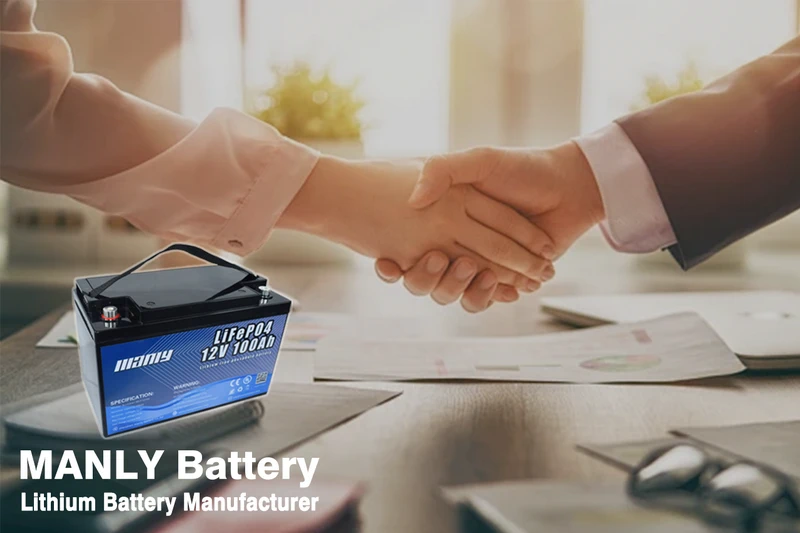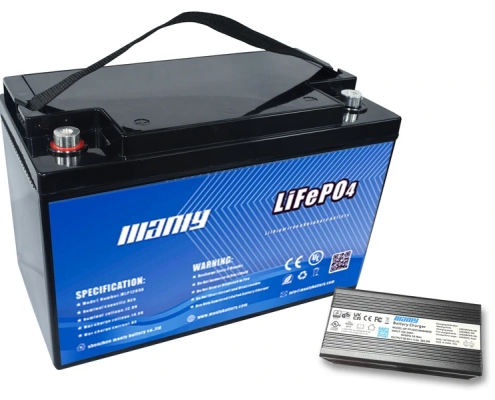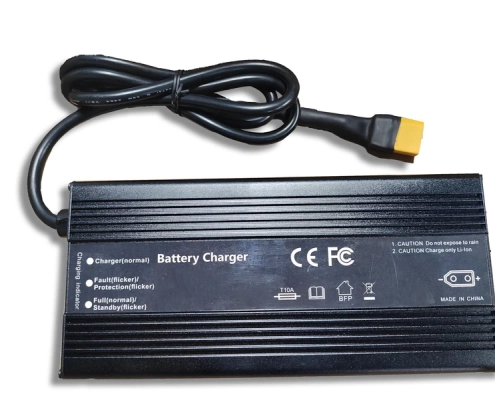2024 What is Wholesale Price vs Retail Price
Table of Contents
- 2024 What is Wholesale Price vs Retail Price
- Wholesale Price vs Retail Price: What is Difference
- Wholesale Price vs Retail Price: Which Is Better for Your Business?
- Wholesale Price vs Retail Price: How Much Can You Save As a Retailer If You’re Buying Wholesale?
- Finding the Right B2B Wholesale Suppliers for Lithium Battery Assemblers
- Conclusion
- Learn More About Battery
Understanding the differences between wholesale price and retail price is essential for businesses aiming to optimize costs and maximize profit margins. Wholesale pricing typically offers a lower per-unit cost by requiring bulk purchases, which can greatly benefit companies that need large quantities of products. In contrast, retail pricing is designed for smaller, individual purchases and often includes a markup to cover operational costs, resulting in higher per-unit prices.
For companies that rely on lithium batteries, such as those in the energy storage, AGV, and golf cart industries, buying at wholesale prices can provide significant cost savings. This article will examine the distinctions between wholesale and retail pricing, the advantages of bulk purchasing, and offer insights on how to find wholesale suppliers suited to specific business needs.
Wholesale Price vs Retail Price: What is Difference
When purchasing inventory, understanding the core differences between wholesale and retail pricing is crucial for businesses and consumers alike. These distinctions center around three primary aspects: price, quantity, and access.
1. Price
Wholesale prices are generally lower than retail prices because wholesalers sell products in large quantities directly from the source. This allows businesses to secure a reduced wholesale price per unit, making it more economical for those who buy in bulk. Retail prices, on the other hand, include a markup to cover the additional costs of selling smaller quantities to consumers. This markup compensates retailers for operational expenses and offers the convenience of buying individual items, but it results in a higher cost per unit for customers.
In the context of lithium batteries, businesses looking for lithium battery wholesale price advantages can achieve significant cost savings by buying directly from wholesalers. This enables them to set a competitive retail price for consumers while maintaining healthy profit margins.
2. Quantity
Wholesale transactions typically involve large quantities. Wholesalers often require buyers to purchase dozens or even hundreds of units in a single order to access the wholesale prices. This bulk-purchasing model allows businesses to stock up efficiently and benefits wholesalers by moving inventory in significant volumes.
Retail purchases, however, offer flexibility in quantity. Consumers can buy as little as one unit, making retail an accessible choice for those who only need a few items. While retail prices are higher, this convenience is ideal for individual buyers who do not require bulk quantities.
3. Access
Wholesale pricing is usually reserved for businesses or industry professionals. Wholesalers may ask for proof of business credentials, such as a business license or tax ID, to grant access to wholesale price lists. This ensures that wholesale deals are primarily available to resellers, manufacturers, or businesses capable of handling larger inventory volumes.
In contrast, retail is open to the general public. No special documentation is required, allowing anyone to purchase what they need at their convenience. This unrestricted access makes retail ideal for everyday consumers, despite the higher price per unit.
Wholesale Price vs Retail Price: Which Is Better for Your Business?
When deciding between wholesale and retail purchasing for your business, it’s essential to understand how each option affects your profitability and flexibility. Generally, buying at wholesale price provides better cost savings per unit, which is ideal for businesses looking to maximize profit margins. However, in specific situations, retail purchases can be the more practical choice, especially if you need only a small quantity or have immediate needs.
For example, wholesale purchasing is highly advantageous for businesses that need to maintain a steady inventory. By buying in bulk, companies can access lithium battery wholesale price discounts, which significantly lower the per-unit cost. MANLY Battery, for instance, offers special pricing for bulk orders: orders below 200 batteries are sold at the standard rate, while purchases of 200-500 batteries receive a 5% discount, and orders over 500 batteries enjoy a 15% discount. This kind of pricing model is especially beneficial for industries that consume large quantities of lithium batteries, such as energy storage or golf cart manufacturing. With these battery wholesale prices, businesses can reduce overall expenses, allowing them to maintain competitive retail pricing for their customers while maximizing profit margins.
On the other hand, retail purchasing can sometimes be more suitable, especially for quick or emergency replenishments. Imagine a business that sells lithium battery-powered devices and experiences an unexpected demand surge for a particular model. If the wholesale supply of that battery is delayed, the business may turn to retail suppliers to quickly restock a few units, even at a higher price. While retail prices cut into profit margins, this approach ensures customer satisfaction by keeping essential products available.
However, relying on retail for frequent stock replenishment can erode profit margins significantly over time. A well-managed inventory system can help mitigate this by forecasting demand accurately, allowing the business to place bulk orders in advance and avoid last-minute retail purchases. Such systems enable businesses to maximize savings from wholesale price offers, ensuring inventory levels are sufficient to meet demand without incurring unnecessary retail costs.
In summary, wholesale purchasing is generally better for businesses aiming for long-term cost efficiency, while retail purchasing can be a quick fix for immediate needs. Choosing the right approach depends on your inventory needs, budget, and how effectively you manage supply and demand.
Wholesale Price vs Retail Price: How Much Can You Save As a Retailer If You’re Buying Wholesale?
Purchasing at a wholesale price offers significant cost savings for retailers, though the exact savings vary widely by industry. Retail markup percentages differ considerably, so understanding the average markup in your specific sector can help estimate potential savings from buying wholesale.
For instance, in industries like pharmaceuticals, retail markups can be extraordinarily high, ranging from 1,000% to 5,000%, making wholesale purchases highly beneficial by avoiding extreme retail markups. On the other hand, electronics generally have a lower markup of around 15-30%, so while wholesale still offers savings, the difference isn’t as substantial.
Here’s an updated breakdown of average retail markups by industry, including lithium batteries:
- Electronics: 15-30%
- Jewelry: 40-50%
- Furniture: 20-50%
- Clothing: 100-300%
- Sports Equipment: 30-50%
- Pharmaceuticals: 1000-5000%
- Cell Phones: 8-10%
- Lithium Batteries: 50-100%
For lithium batteries, the retail markup typically falls between 50% and 100%, depending on their intended application, such as energy storage, electric vehicles, or consumer electronics. Retailers who purchase lithium batteries at lithium battery wholesale price levels can realize substantial savings on per-unit costs, enabling them to maintain competitive pricing for their customers while ensuring a profitable margin.
In summary, wholesale purchasing can significantly boost profitability, particularly in high-markup industries. By taking advantage of battery wholesale prices where applicable, businesses can optimize inventory costs and pass on these savings to their customers.
Finding the Right B2B Wholesale Suppliers for Lithium Battery Assemblers
For businesses involved in assembling lithium batteries for applications such as AGVs, golf carts, and energy storage systems, sourcing from the right b2b wholesale suppliers is essential to maintain competitive pricing and high product quality. Choosing a reputable business wholesale supplier can not only reduce costs but also ensure reliability and efficiency in the long run. Here, we’ll explore a few notable lithium battery suppliers, including some leading names in Europe and North America, to help companies find wholesale suppliers suited to their needs.
1. MANLY Battery (China)
As one of China’s most prominent battery manufacturers, MANLY Battery stands out with over 13 years of experience in the lithium battery industry. With a daily production capacity of 6MWh and over 3,000 battery units assembled each day, MANLY caters to various industrial applications, from energy storage and forklifts to golf carts and robots.
MANLY Battery is known for its versatility and extensive customization options. Businesses that need tailored solutions—whether for specific voltages, capacities, or custom designs—can benefit from MANLY’s bespoke services. The company’s products are globally certified, carrying UN38.3, IEC62133, UL, and CE certifications, which add layers of trustworthiness and quality assurance. Additionally, MANLY’s products come with a 10-year warranty, enhancing the brand’s reliability. With features like short circuit protection, overcharge safeguards, and resilience in extreme temperatures, MANLY offers a comprehensive solution for those seeking lithium battery wholesale price options without compromising on safety or performance.
2. Panasonic Corporation (Japan)
Panasonic is a well-known leader in battery technology, particularly for its lithium-ion cells used in electric vehicles and energy storage systems. For companies assembling lithium battery-powered devices, Panasonic provides high-quality and durable cells that meet rigorous safety standards. Panasonic’s extensive experience in the battery market and its commitment to innovation make it a solid choice for manufacturers looking for reliable business wholesale options, although the pricing may reflect the brand’s high-end positioning.
3. LG Chem (South Korea)
LG Chem is another major player in the lithium battery industry, providing battery cells for various applications, including electric vehicles, residential energy storage, and industrial equipment. Known for its advanced technology and high energy efficiency, LG Chem’s products are particularly appealing for companies that prioritize performance and longevity. With extensive global distribution networks, LG Chem serves as a reputable b2b wholesale supplier for companies looking for high-quality, long-lasting lithium batteries.
4. Tesla (Gigafactory) (United States)
Tesla’s Gigafactory has made significant strides in lithium battery production, particularly for its use in electric vehicles and large-scale energy storage solutions. While Tesla primarily uses its batteries internally, it has also explored collaborations with other companies for energy storage projects. For businesses in the U.S. needing high-performance lithium batteries, Tesla’s batteries offer excellent energy density and durability. Tesla may not serve as a conventional b2b wholesale supplier, but its batteries are influential in the market, especially for large energy storage applications.
5. CATL (Contemporary Amperex Technology Co., Ltd.) (China)
CATL is one of the largest lithium battery manufacturers in the world and a key supplier for electric vehicles and energy storage applications. With a robust production capacity and partnerships with major automotive brands, CATL offers high-quality lithium batteries at competitive wholesale prices. The company’s focus on sustainability and cutting-edge technology makes it a strong candidate for businesses looking to find wholesale suppliers in the lithium battery sector. CATL’s products are widely recognized for their safety, energy efficiency, and long cycle life, making them suitable for demanding applications.
Selecting the Best Supplier for Your Needs
Choosing the right supplier depends on various factors, including specific application requirements, budget constraints, and desired customization levels. MANLY Battery, for example, excels in offering tailored battery solutions at a lithium battery wholesale price that suits diverse needs, making it an ideal choice for businesses needing flexibility and large-scale production. Meanwhile, companies like Panasonic and LG Chem offer premium battery cells known for quality and durability, which can be ideal for high-end applications but may come at a higher cost.
In summary, finding the right b2b wholesale suppliers for lithium batteries involves balancing cost with quality and choosing a supplier that aligns with your specific assembly and application needs. Whether you’re looking for custom battery solutions, high energy efficiency, or robust safety features, the suppliers listed above provide a range of options to meet the demands of various industries, from AGVs and golf carts to large energy storage systems.
Conclusion
In summary, for businesses that require a steady supply of lithium batteries for assembly in applications like energy storage systems, golf carts, and industrial robots, choosing the right b2b wholesale suppliers is essential. Opting for a business wholesale approach not only enhances cost savings but also provides flexibility in customization and product quality. With suppliers like MANLY Battery offering tailored solutions and competitive lithium battery wholesale price options, businesses can access high-quality products while optimizing expenses. As companies navigate the wholesale market, understanding pricing structures and aligning with reliable suppliers will help ensure steady growth and a robust bottom line.






